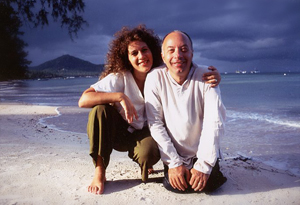
Why Saying No Is Saying Yes to Yourself
The world is like a magnet, constantly pulling your energy outward with activities, concerns and caring for others, whether it's your children, family or work. In the midst of all this, what happens to you? "I have so much to do! The children are always too noisy, too demanding! I have too many meetings, letters to be answered, orders to be filled, classes to teach, deliveries to be made." The list is endless. As a result, it never seems possible to find time to just be with you.
It is also easy to feel that any time you take to relax or meditate is time that could be better used elsewhere. But taking time out does not mean it is selfish or even wasted time. Think about what happens when your day is spent constantly caring for others. Do you get burnt out, resentful, irritated or even angry? Do you find stress building up? Do you lose your temper or get ill easily? Does the quality of care that you offer become affected by that inner tension? Or are you so used to being this way that it seems impossible to imagine being any other way? You may even believe you're not the relaxing type or that if you do relax you will not be able to cope with all the things you have to do.
However, by taking time for yourself—by lowering your blood pressure and releasing stress—you are immediately creating a more harmonious environment with a greater ease and peace that can only benefit those around you. When you take time out to be quiet, it means you do not get so angry, resentful or frustrated. Instead, you have time to go within, to connect with who you really are. Then what you share with others is coming from that peaceful space. When you are energized and feeling good, you will be able to do far more than if you are dragging yourself through your day with little energy or in a bad mood. So, rather than being selfish, such activity is actually the least selfish thing you could do! This is when saying no to others means you are saying yes to yourself, which is ultimately of even greater benefit to the ones you were saying no to.
Our yoga teacher Swami Satchidananda, said, "Never compromise your peace, whether it be to your children, parents, husband, wife or friends." Unless you are at peace, what you give to others is your stress or anxiety. Zen teacher Thich Nhat Hanh has a telephone meditation he teaches: When the telephone rings, just wait, breathe in and out and slowly, walk to the phone and be at ease when you answer. Then the person at the other end will feel your peace.
Make time for yourself














